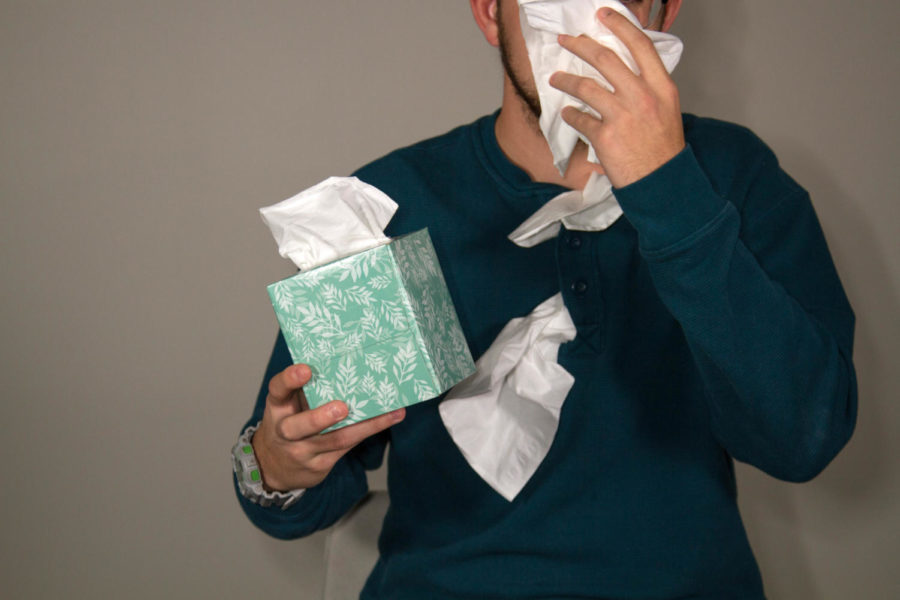Flu Season is Coming
October 3, 2017
Fall is among us which means so is flu season. What are you doing to prepare and avoid getting sick this upcoming fall and winter? Do you know what to do when you start to get symptoms of the common cold?
On a campus of over 36,000 students getting a cold is hard to avoid, but Laura Knowles, nursing and patient services supervisor, has some tips to keep you in class instead of in bed with a fever.
“Flu season ranges from September to January at its peak. Hand washing is one of the biggest things for preventing yourself from getting sick and spreading germs, I would even recommend students carrying around a little bottle of hand sanitizer with them. Also, making sure to cover your mouth fully in your elbow when sneezing or coughing is another huge way to prevent the spreading of germs,” Knowles said.
So, how exactly do you know if you have the flu? According to Centers for Disease Control and Prevention, the flu usually comes on suddenly and includes all of the following symptoms:
fever (feeling feverish/chills), cough, sore throat, runny/stuffy nose, muscle/body aches, headaches and fatigue.
“A big misconception is when people say they have the “stomach flu” when in reality that is not what they have, the flu is a respiratory disease and does not have to do with nausea or diarrhea,” Knowles explained.
Knowles recommends that as soon a student starts to feel symptoms of the flu to drink clear liquids, take over the counter medicines like Tylenol or Ibuprofen every 4-6 hours and to get as much rest as possible. She also recommended the home remedy of rinsing with salt-water to help break up nasal congestion.
Flu shots are also another way to prevent yourself from getting sick this flu season, which the Thielen Health Center provides for students.
“Flu shots’ effectiveness is different for every person and lasts usually 9-12 months, but some protection is better than none. Not only are you helping protect yourself from getting sick, but you’re helping protect students around you from getting sick,” Knowles answered when asked about getting a flu shot this fall.
Nurses are available to answer any questions over the phone at any time at the student health center; even if you just have a question about what medicine to buy or describe your symptoms to see if you need to go into see a doctor.
“We have such a dedicated staff. As a nurse I make a very difficult patient, however I would trust any provider here with my own healthcare in any program. Our staff is so willing to do anything they can to help students,” Knowles said.
With cases of the flu already reported in Iowa and students from all over the world on campus, you can never be too careful with taking precautions to prevent yourself from getting the flu.







